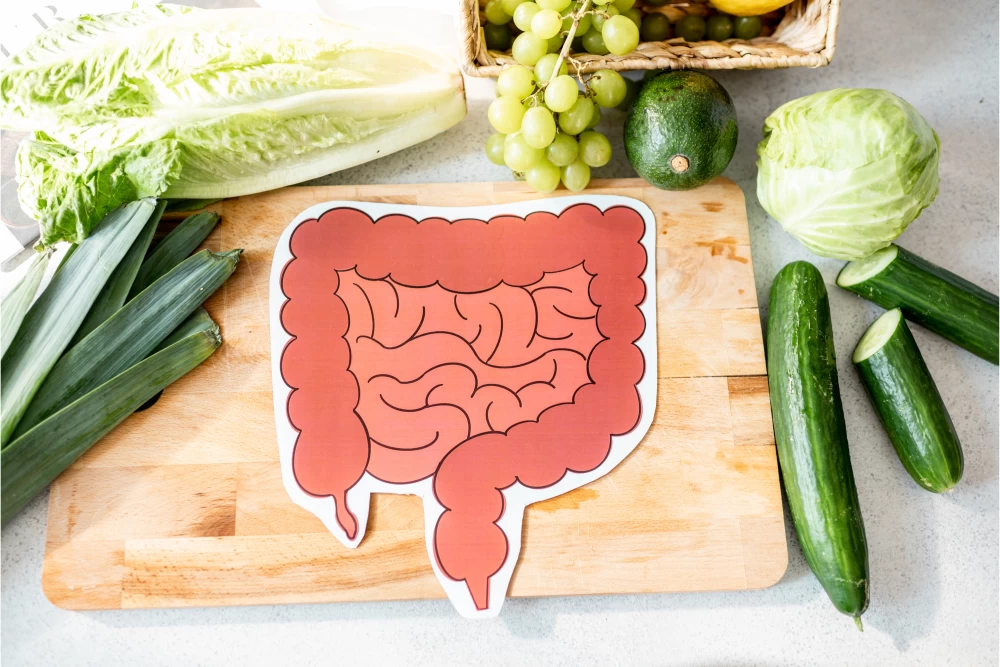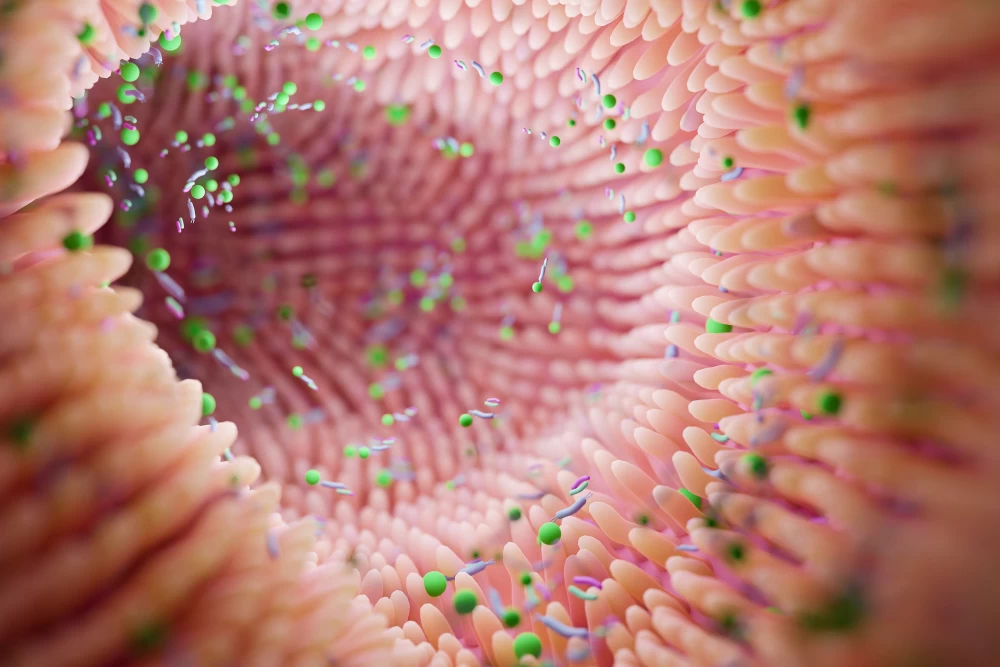
- 24th March 2023
Table of Contents
Causes of Fatty Liver
Fatty liver disease occurs due to the accumulation of fat in the liver cells. The two main types of fatty liver disease are alcoholic and nonalcoholic, with the latter being more common. Nonalcoholic fatty liver disease (NAFLD) is linked to obesity, insulin resistance, and metabolic syndrome. Insulin resistance can cause excess glucose to accumulate in the blood leading to high levels of insulin production by the pancreas which contributes to fat buildup in the liver. Another cause of NAFLD is an unhealthy diet that is high in sugar and saturated fats. These types of foods contribute to weight gain and inflammation that can lead to insulin resistance and fatty liver disease. Additionally, gut health plays a vital role in preventing fatty liver disease as it affects digestion and absorption of nutrients from food. Poor gut health can lead to bacterial overgrowth which increases inflammation throughout the body, including in the liver.
Gut Health and Fatty Liver
A fatty liver is a condition where there is an excess accumulation of fat in the liver cells. This can lead to inflammation and damage to the liver, which can cause serious health problems such as cirrhosis, liver failure, and even cancer. One of the most important factors that contribute to fatty liver disease is diet. An unhealthy diet that is high in saturated fat and refined carbohydrates can cause fat to build up in your liver. Gut health plays a crucial role in maintaining overall health, including the health of your liver. The gut microbiome is a complex ecosystem of bacteria that live in our digestive system and play an essential role in digestion, immune function, and metabolism. Recent research shows that changes in gut microbiota composition are linked with several metabolic disorders, including obesity and non-alcoholic fatty liver disease (NAFLD). Therefore, incorporating foods that support gut health into your diet may help prevent or treat fatty liver disease by promoting healthy digestion, reducing inflammation levels throughout the body and supporting overall optimal wellness for better energy levels throughout each day.
Benefits of a Fatty Liver Diet
A fatty liver diet can offer numerous benefits for those concerned about their gut health. As the name suggests, a fatty liver diet is focused on reducing the amount of fat in your liver by consuming foods that are low in saturated fats, trans fats, and added sugars. This type of diet can help improve insulin sensitivity, which can reduce inflammation in the body and lower the risk of developing chronic diseases such as diabetes and heart disease. In addition to improving insulin sensitivity, a fatty liver diet can also promote weight loss. Being overweight or obese is one of the leading causes of non-alcoholic fatty liver disease (NAFLD), so reducing your overall body weight through healthy eating habits can help prevent this condition from developing. Furthermore, a healthy diet can enhance your gut microbiome by increasing the number of beneficial bacteria in your digestive tract. These bacteria play an important role in regulating digestion and immune function, so supporting them with a balanced diet is key to maintaining optimal gut health. Overall, following a fatty liver diet has numerous benefits for not only your liver but also your overall health and well-being. By making small changes to your eating habits and focusing on consuming whole foods that are rich in nutrients, you can support both your gut health and liver function while preventing chronic diseases from developing over time.

Foods to Avoid for Fatty Liver
Fatty liver disease is a common health condition that affects many people around the world. It occurs when there is too much fat accumulated in the liver, which can lead to inflammation and scarring of the liver tissue. One major cause of fatty liver disease is an unhealthy diet, which means that certain foods should be avoided to prevent or reverse it. Some of these foods include high-fat dairy products, such as cheese and cream, processed meats like bacon and sausage, sugary drinks like soda and fruit juice, and refined carbohydrates like white bread and pasta. Another group of foods to avoid for fatty liver are those that are high in fructose or added sugars. These include candy, pastries, sweetened cereals, and desserts. Excessive consumption of fructose can contribute to insulin resistance and inflammation in the liver. Additionally, alcohol consumption should be minimized or avoided altogether if you have fatty liver disease as it can further damage your already compromised liver. In summary, a healthy diet plays a key role in managing fatty liver disease. By avoiding certain types of food including high-fat dairy products, processed meats, sugary drinks & refined carbs with excessive fructose content one can keep their gut health well balanced & intact while also helping their body heal from this condition over time without facing any serious complications down the line.
Foods to Include for Gut Health
When it comes to maintaining good gut health, there are a number of foods that you should include in your diet. These foods can help to promote the growth of healthy bacteria in your gut and provide a wide range of health benefits. Some of the best foods for promoting gut health include fermented foods like kimchi, sauerkraut, and kefir, which contain high levels of beneficial bacteria called probiotics. Another important food group for improving gut health is fiber-rich fruits and vegetables. Fiber helps to feed the healthy bacteria in your gut, keeping them well-nourished and thriving. Foods like broccoli, beans, artichokes, raspberries, and avocado are all great choices for boosting your fiber intake. Finally, healthy fats are also essential for maintaining good gut health. Foods like salmon, chia seeds, flaxseeds and nuts provide anti-inflammatory omega-3 fatty acids that help reduce inflammation associated with fatty liver disease while preventing further damage to your body's tissues. Incorporating these healthy fats into your diet can help support overall wellness and promote optimal digestive function over time.
Conclusion
In conclusion, the connection between fatty liver disease and gut health cannot be overstated. A healthy gut is essential for the prevention and treatment of fatty liver disease. As such, a significant aspect of managing this condition is through dietary changes that promote good gut health. One way to improve gut health is by incorporating prebiotics and probiotics into your diet. Prebiotics are non-digestible fibers found in certain foods that stimulate the growth of beneficial bacteria in the gut. On the other hand, probiotics are live microorganisms that confer health benefits when consumed in adequate amounts. Apart from prebiotics and probiotics, it is also important to avoid processed foods, high-carbohydrate diets, and unhealthy fats as these contribute to a poor gut environment. Adopting a balanced diet rich in fiber, lean protein sources like fish or chicken breast while limiting alcohol intake can go a long way in promoting good gut health and preventing fatty liver disease.














